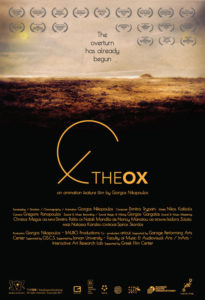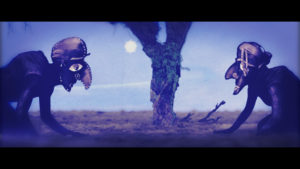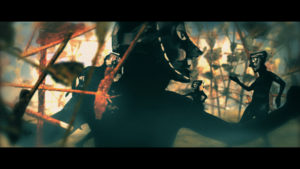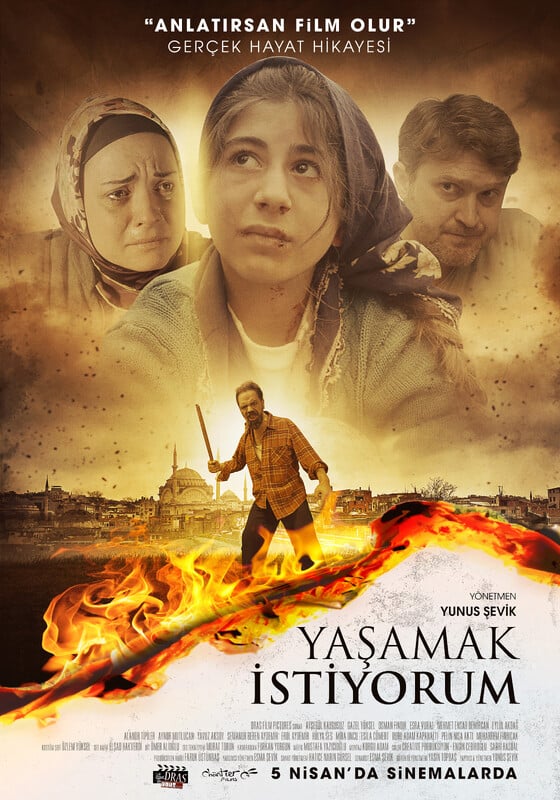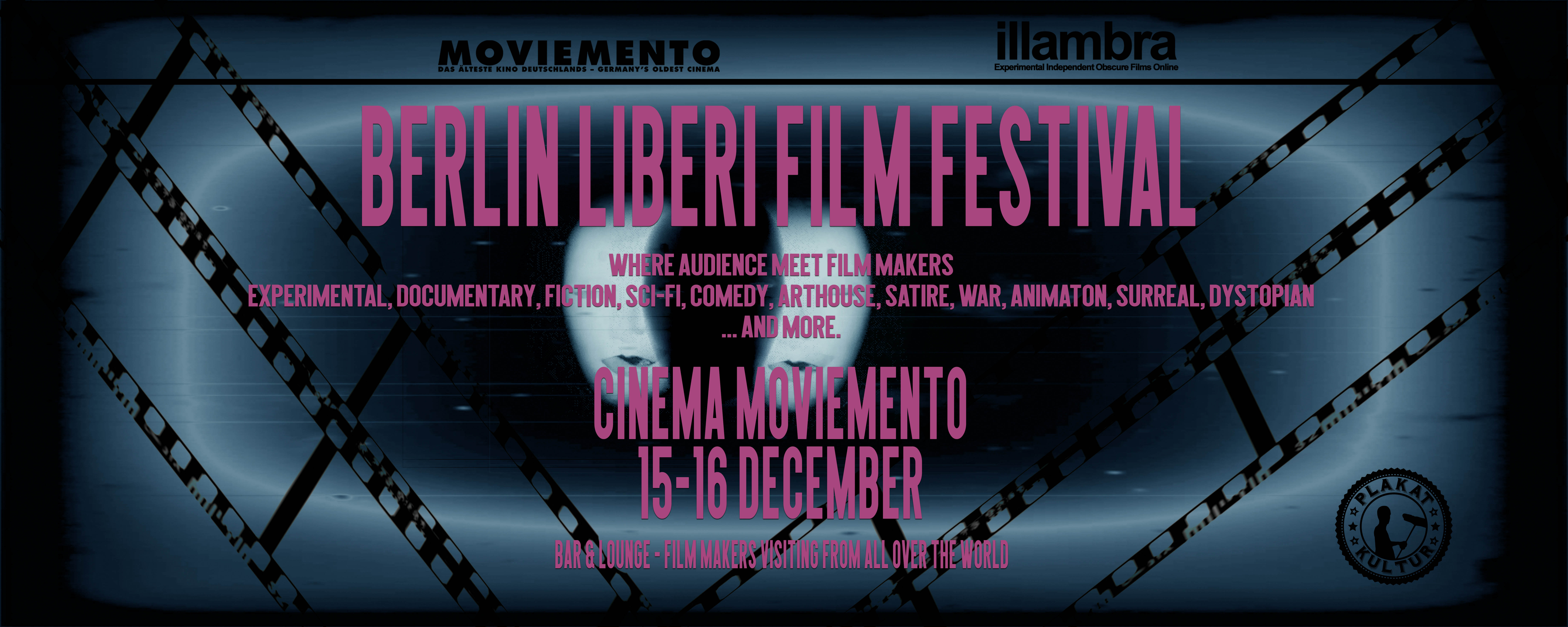
BLFF 2018 Indie Film Review “The Ox”
WATCH THE TRAILER HERE
First, the Recap:
The yoke of subjugation. Throughout the history of man, the concept of enslavement being set upon one group of individuals by the reigning, fear-instilling few is, sadly, an all-too-common tale. Even more sorrowfully, it is the many who allow their fear of a despotic ruler to quell any notions of rising up, defending their rights as human beings, and gaining the freedom so richly deserved. However, at times, there indeed are those who refuse to be dominated by trepidation, bringing needed energy and fortitude to start the rebellion. There is a far away, mythical land where one such ruler, called The Controller (Spiros Skordos), holds tyrannical sway over the aged population is absolute, seemingly unbreakable, with a haunting Angel (Natassa Karalia) as his mouthpiece.
Among those bound to servitude is an Old Man (Dimitris Politis) whose farmed The Controller’s lands for many years and is reaching the end of his days. Unable to forge any social connections, his only friend is his beloved Ox (Natali Mandila), who dutifully aids his master in tilling and planting the land, required by The Controller to be filled with a magical elixir that turns all to gold to suit their oppressor’s greed. But, when events transpire that remove any last remaining joy from the Old Man’s dwindling time, the harrowing adventure that follows brings him into contact with an Old Woman (Isidora Zolota) who cares for him a young Girl (Nancy Manatou) who may hold the fearless determination to stand up and lead the way to their persecutor’s overthrow.
Next, my Mind:
It would be a serious understatement, in reflecting on this 67-minute indie feature film effort from writer/director/producer/cinematographer/editor Giorgos Nikopoulos that will be screening at the 2018 Berlin Liberi Film Festival, when I say this has to be the most uniquely obscure, sometimes perplexing, incontrovertibly creative, and ultimately captivating narrative about an uprising I’ve seen–ever. One could argue that given the overall artistic intricacies of the film’s visual execution and a total exclusion of any discernible dialogue, we’re potentially in for a slow burn, and that is in many respects true here. But, don’t let that detract from the sheer aesthetic value and intelligence of how what we see is put together, which mixes green screen interpretive dance/movement performance and intricately created masks and costuming with other forms of animation, or dissuade you from what does, in the end, become a captivating and affecting story of people who long for freedom finding their way to it while also discovering peace within that’s long eluded them, especially from the perspective of the Old Man and Old Woman.
But just the amount of work it had to have taken to get the exact motions of the characters and the nuances of each that made them stand out (ie: The Angel, given the manner of her character, moved somewhat snake-like) could not have been anything but time-consuming, much less to meld this in with the other animated backgrounds, even with today’s digital technology. Plus, at least to this reviewer, it’s a true feat to successfully establish an entire narrative with no dialogue, as hinted above, and that did lend itself to a bit of tediousness at first as a viewer. However, once you really begin to pay attention to all the visual clues and details that move the proceedings along, it garners a whole different and fresh appreciation for why independent cinema deserves a much stronger voice and presence in the greater, grander, worldwide moviegoing arena. Additionally, the project’s distinctive musical orchestrations, as arranged by composer Dimitra Trypani, provide such an ethereal atmosphere to what’s being depicted as well, actually aiding in transporting you to the mythical place where everything unfolds.
Voices for the varying sighs, sounds of toil, anguish, surprise, elation, etc are well covered via the various actors that took on the character roles for green screen capture along with wearing the masks that define each of them. Politis’ Old Man is performed with the precise delivery you would expect in representing a man who’s labored all his life and has now aged to exhaustion, hunched over, barely able to maintain any ability to walk with any real speed, and just sounding worn out. What’s also impressive is Mandila enacting the Old Man’s best friend and the film’s namesake, the Ox, who just like his master, has worked his body to utter fatigue, yet still serves his friend with full measure of strength and devotion. It makes the character’s fate much more palpable with how we understand the bond the two share. Karalia’s performance as The Angel is quite ominous, which the character should be, slinking along the ground with a menacing gate and a serpent’s hiss that so deftly befits delivering a tyrant’s wishes. His forcefulness of rule is evident, his cruelty and greed unmatched, at least until someone stands up to him, and yet the Angel delivers his messages still, offering portents of what is to come, which Karalia embodies with highly believable intensity.
Zolota is wonderfully believable as the Old Woman, who finds the Old Man one day in his search through the barren wastelands for his lost Ox, and her nurturing ways are evident throughout the time the two meet, part ways, and then meet again in what culminates to a very moving, albeit bittersweet, finale. Manatou brings an almost playfully dynamic energy to her role as the Girl, a strong, vibrant person who chooses to be the voice of revolt against The Controller, doing so despite his best efforts to keep her, and therefore his reign and golden kingdom, in check. The final primary role comes from Skordos as the Controller, who watches from on high and with fearsome gaze over all that is transpiring in his domain. He’s a vision of doom and despotic reign, as intended, and his very form stands as a significant symbol of this evil purpose. Either way, it was another directly forbidding presence, and Skordos delivers that aura well. Additional characters, children to be exact, appear in the latter moments of the film, all played by Manatou, Zolota, and Politis.
In total, after assuming the willingness to bear with the slower pace and allow things to develop, “The Ox” is a definitive exercise in indie filmmaking, the inherent quirkiness that can come from it, the innovative, modernistic minds behind it, the fresh visualizations and avant-garde narrative styles that emanate through it, and what this critic feels is the ongoing daring to simply put something out there that’s different, in hopes that moviegoing audiences can finally leave a theater having witnessed something wholly original and actually worth raving about.
As always, this is all for your consideration and comment. Until next time, thank you for reading!


